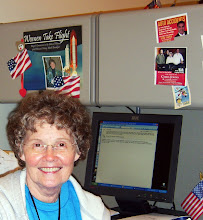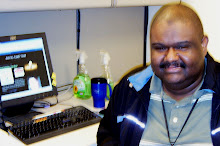New Search Tool Aims at Answering Tough Queries, but Not at Taking on Google
By MIGUEL HELFT
Every new online search service must face the inevitable question: “Is it better than Google?”
WolframAlpha, a powerful new service that can answer a broad range of queries, has become one of the most anticipated Web products of the year. But its creator, Stephen Wolfram, wants to make something clear: Despite the online chatter comparing it to Google, his service is not intended to dethrone the king of search engines.
“I am not keen on the hype,” said Mr. Wolfram, a well-known scientist and entrepreneur and the founder of Wolfram Research, a company in Champaign, Ill., that has been quietly developing WolframAlpha.
Mr. Wolfram’s service does not search through Web pages, and it will not help with movie times or camera shopping. Instead it computes the answers to queries using enormous collections of data the company has amassed. It can quickly spit out facts like the average body mass index of a 40-year-old male, whether the Eiffel Tower is taller than Seattle’s Space Needle, and whether it is high tide in Miami right now.
WolframAlpha, which is expected to be available to the public at wolframalpha.com in the next week, is not a finished product. It is an early working version of a project that has been years in the making and will continue to evolve over years, if not decades. As such, there is much it cannot answer now.
But even as he dismisses the Google comparisons, Mr. Wolfram, a former child prodigy who published his first research paper on particle physics at age 15 and is best known for creating the math-formula software Mathematica, is happy to add fuel to the simmering expectations surrounding his service.
“I think WolframAlpha has the potential to be quite important,” he said.
The goal of creating a computer system that can answer questions has been a tantalizing but elusive pursuit for many computer scientists for more than four decades. Some veterans of the field say Mr. Wolfram may have come as close as anyone yet.
“In many ways, creating a system like this has been a holy grail of lots of folks for some time,” said Nathan Myhrvold, a former chief technology officer of Microsoft and co-founder of Intellectual Ventures, an investment company that owns a portfolio of patents.
“It has wound up being considered something that is virtually impossible,” Mr. Myhrvold said. WolframAlpha has shown “that it wasn’t impossible but really difficult,” he added. “It involved applying lots of different tricks.”
Doug Lenat, an artificial intelligence expert whose company Cycorp has spent the last 15 years developing a system that brings human-like reasoning to some computer systems, said WolframAlpha can handle “an astronomical number of questions,” and could eventually turn into a favorite destination on the Web.
“It may become a massive player alongside Google,” Mr. Lenat said.
Traditional search engines like Google and Yahoo, by and large, excel at finding information that already exists online. If there are Web pages that include the words used in a query, the engines will find them and rank them in order of relevance.
WolframAlpha is different. For starters, it does not gather data from the Web. Instead, its “knowledge base” is made up of reams and reams of data — ranging from the kinds of facts you would find in a World Almanac, to highly specialized data from physics and other sciences — that some 100 employees at Wolfram Research have gathered, verified and organized over several years.
When a user types in a query, WolframAlpha tries to determine the relevant area of knowledge and find the answers, often by performing calculations on its data. If you type “LDL 120,” it will return a graph showing the distribution of cholesterol levels among the United States population, and display the percentage of people above and below that figure. If you type “LDL 120 male 33,” it will adjust the results to focus on that gender and age group.
In response to “how far is the Moon from Earth,” WolframAlpha will calculate the exact distance based on an algorithm that computes the ever-changing distance between the two bodies. The engine that computes answers is largely built on Mathematica.
In its current state, there are many queries that WolframAlpha cannot answer, either because it does not understand the question or because it does not have the requisite data. For instance, it is stumped by queries like “obesity rate,” “housing prices New York” or “unemployment San Francisco” (but it will answer “unemployment San Francisco County”).
“It is going to be very good in some areas and incomplete in others,” said Nova Spivack, the chief executive of Radar Networks, which is using artificial intelligence and other techniques to help people find Web content that is interesting and relevant to them.
WolframAlpha does not actually try to work out the real meaning of a query, as some artificial intelligence systems do, so there are some questions it will never be able to answer. But experts say its approach appears to be effective in many areas.
“He’s done a great job of marrying the acquisition of data with the mathematical algorithms,” said David A. Ferrucci, an artificial intelligence researcher at I.B.M., who is leading a team developing a computer program that will compete with humans on “Jeopardy.”
If successful, WolframAlpha has the potential to become a large business opportunity. For now, Mr. Wolfram said he plans to offer advertising and other forms of sponsorship on the site, and perhaps offer premium versions of the service for researchers. And somewhat coyly, he said he has discussed potential partnerships with the “obvious people,” including search engine companies.
“We are actively pursuing interesting relationships,” he said.
Representatives for Google and Yahoo declined to discuss WolframAlpha.
Mr. Spivack and others said WolframAlpha may become a complement to traditional search engines, which themselves have begun to offer simple versions of the kinds of calculations and data manipulation at which WolframAlpha excels.
“There is a huge space of possible questions that Google doesn’t answer,” Mr. Spivack said. “I think WolframAlpha will go well beyond the academic world to cover business and industry, economics, health.”











+002.jpg)